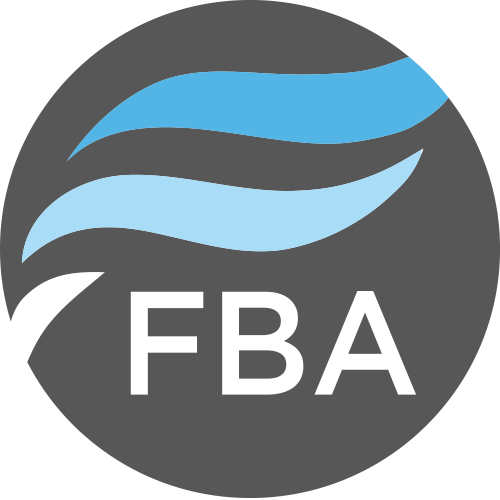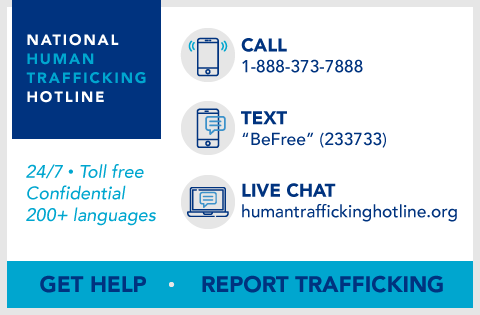An Economic Solution To Human Trafficking
This article originally appeared on the G20 Interfaith Forum blog.
____________
Ghanaian diplomat and former Secretary-General of the UN Kofi Annan introduced the issue of human trafficking to the UN General Assembly in 2000 with this statement:

I believe the trafficking of persons, particularly women and children, for forced and exploitative labor, especially for sexual exploitation, is one of the most egregious violations of human rights which the United Nations now confronts.¹
Over twenty years later, this egregious violation not only still exists, but has increased. The International Labour Organization estimates that at any given time, 40.3 million people, predominately women and girls, are trapped in modern slavery, including 24.9 in forced labour.²
THE BUSINESS OF HUMAN TRAFFICKING
While awareness of this global crisis has grown in recent years, many still do not recognize the economic aspects of the issue, leaving a complete solution just out of grasp, until now. Freedom Businesses have been launched to address this gap, arising as a groundswell response from entrepreneurs operating in the anti-trafficking ecosystem, all of whom are on mission to create life-giving jobs for survivors of human trafficking and labor exploitation.
Make no mistake: human trafficking is a business. It is estimated that the total profits obtained from the use of forced labour in the private economy worldwide amount to US$150 billion per year.3 After drug dealing, human trafficking is tied with the illegal arms industry as the second largest criminal industry in the world.
While there are still legal and law enforcement issues to be improved, a major root cause of trafficking is economic vulnerability. Places with high unemployment and under-employment are high-risk areas, where traffickers lure vulnerable people, most of them women and girls. People are making money from the sale of those most economically vulnerable among us. This is business in its most evil form.
JOBS AS AN ANTIDOTE
Job creation in the poorest regions is needed, but not only as a preventative measure. It turns out that jobs are also one of the most vital pieces in the recovery and reintegration of survivors of human trafficking as well.
Without a job opportunity after rescue, 80% of survivors are re-trafficked.4 This is a shocking statistic, but makes complete sense when seen through an economic lens. If poverty and lack of skills makes someone vulnerable to trafficking, how much more vulnerable is someone with the same lack of education and skills who is also coping with trauma experienced at the hands of a former employer?
Survivors don’t just need a job—they need a job in a workplace uniquely suited to building their skills and helping them heal in a supportive community of trauma-informed leaders and colleagues. By combining the vital components of economic opportunity and holistic employee development, Freedom Businesses provide the missing piece in a comprehensive solution to human trafficking. If human trafficking is business gone bad, this is its antidote.
THE GROWTH OF REDEMPTIVE ENTREPRENEURSHIP
But the work is not easy. While traditional businesses typically seek to hire the best and brightest, Freedom Businesses hire the traumatized and uneducated. Thus, they intentionally create opportunities for those who require developmental strategies such as holistic aftercare, comprehensive training and ongoing development. This puts a unique strain on these businesses, requiring innovative business models to achieve sustainability, let alone profitability. They go beyond models free from exploitation, even beyond a high standard of workplace ethics, into models that, to use a term coined by Praxis Labs, are a prime example of redemptive entrepreneurship.
Over the past decade, Freedom Businesses around the world have sprung up as a grassroots response to the tragic cycle of re-exploitation in anti-trafficking interventions, often founded by leaders who witnessed the issues firsthand and decided to take action. These businesses are growing slowly and steadily, but still vastly out of proportion to the need. They require resources and partnerships to grow and scale.
FREEDOM BUSINESS ALLIANCE
Freedom Business Alliance is a global network of over 100 of these businesses operating in more than 28 countries around the world, an industry facilitator for these businesses uniquely positioned to undermine the economically-driven foundations of human trafficking.
Freedom Businesses need your support. You can support Freedom Businesses through the simple act of purchasing products and services they produce, as each sale contributes to more life-giving jobs. Our online wholesale marketplace (link to shop) provides B2B buyers can register to shop for goods made by Freedom Businesses around the world. Our members list (link) gives consumers a directory of Freedom Businesses with links to their websites.
Another easy way to show your support is to like and share our content. Follow @freedombusiness alliance on LinkedIn, Instagram and Facebook. Share our posts with your network and use your voice to influence change.
Support can also come through partnerships. The Freedom Business movement needs men and women with skills and expertise to come alongside members. How can your knowledge and experience empower Freedom Businesses in their life-changing work? Click here to get the conversation started.
Finally, you can support Freedom Business through becoming an Ally. Your monthly gift of $25 or more ensures our Member Businesses receive the continual training and business development opportunities that help create transformational jobs for survivors of human trafficking and those at risk. Become an Ally now.
______
¹ Annan, Kofi. “Address At The Opening Of The Signing Conference.” The United Nations Convention Against Transnational Organized Crime. Dec. 12, 2000.
² International Labor Office. “Global Estimates of Modern Slavery: Forced Labour and Forced Marriage Executive Summary 2016.” Available at: http://www.ilo.org/wcmsp5/groups/public/@dgreports/@dcomm/documents/publication/wcms_575540.pdf
³ International Labor Office. “Profits and Poverty: The Economics of Forced Labour.” 2014. Available at http://www.ilo.org/wcmsp5/groups/public/—ed_norm/—declaration/documents/publication/wcms_243391.pdf
⁴ Thomson Reuters Foundation. “Jobs to Restore the Lives of Slavery Survivors and Prevent Re-trafficking.” Trust Conference. Accessed June 02, 2018. http://www.trustconference.com/actions/i/?id=0598c1c2-c724-410d-a5e0-ac60fa9d7b8c.
Related Articles
KAREN SCHMIDT STEPS DOWN
The Board of Directors of Freedom Business Alliance announces the upcoming departure of our Executive Director, Karen Schmidt.
A call to address modern labour exploitation
“Forced labour imposes significant economic and social burdens on society as a whole. It not only deprives individuals of their freedom and dignity but also perpetuates cycles of poverty, undermines economic development, and erodes social cohesion.”
MYTH vs REALITY: Debunking the Commonly Held Myths Around Human Trafficking
People often associate human trafficking with Jeffrey Epstein-type figures, fighting against Liam Neeson or a main character in the Sound of Freedom. And while these moments in pop culture did raise awareness for human trafficking in our modern era, they also created a lot of myths in their wake.



